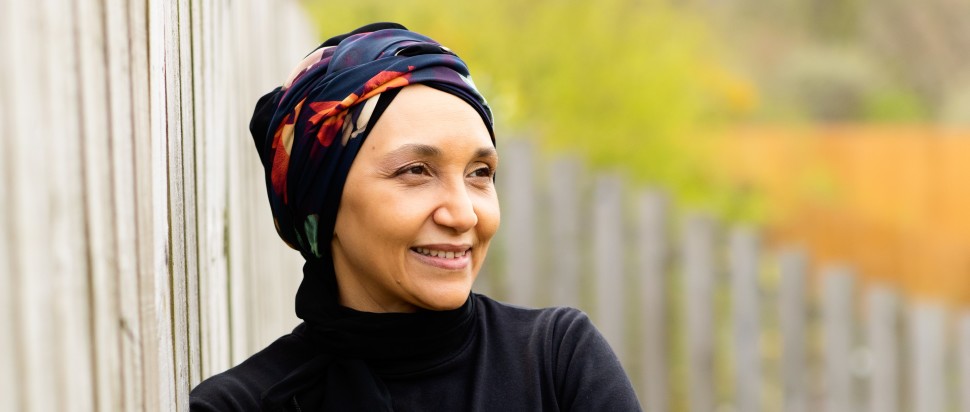Leila Aboulela on her latest novel River Spirit
We chat with Cairo-born, Sudan-raised and Aberdeen-resident Leila Aboulela about her latest novel River Spirit, and the importance of re-examining the histories we are handed
In 2018, Leila Aboulela arrived at the Rockefeller Foundation Bellagio Centre in Italy with plans to write a novel exploring Khartoum’s rebuilding following the 1898 British conquest of Sudan. What emerged was a different book altogether. River Spirit draws on the Cairo-born, Sudan-raised and now-Aberdeen-resident’s own experience living across three countries, carving important lines into the face of contemporary fiction with explorations of migration and identity. Weaving together overlapping voices to paint a portrait of a city and its people caught in the middle of imperialist power struggle, seven men and women – whose lives link in unexpected ways – join together to frame Aboulela’s narrative. The brunt of the action follows Zamzam from her girlhood in 1877 on the banks of Nile throughout her years of capture, bondage and love during the Mahdist period leading up to the first British flag raised over Khartoum in 1898.
“I used to be very secretive about my work,” Aboulela explains, looking back on her decades-long writing career. “[The residency] was the first time I had to speak about my writing. And it was good – someone challenged me. She asked: ‘Where are the women? You need to find them, you need to make the effort.’ The reason you had all of these men crowding [the book] was because that is what you see when you open the history books. You have to go against that, you have to say well, no, my book is going to be different.”
Sudan’s Mahdist period is a cornerstone of such history books, and initially Aboulela was reluctant to delve into it. “There was too much war, too much action. I did not want to write a book about war,” she explains. Yet through writing, she discovered a desire to bring attention to the voices of women during the period, crafting her characters from the margins of history. Her inspiration for Zamzam was plucked from a bill of sale and details of a petition of an escaped enslaved girl returning to her former master. “I thought it was interesting,” Aboulela says, “this idea of someone going back to someone she had been with before – why would she do that? And that sort of got my imagination going. With imagination you can give these women voices.”
Forays into intricacies of power lace through Aboulela’s writing. The character of Robert, an engineer and artist based on Scottish painter David Roberts, explores dynamics between sitter and artist, local and expat, man and woman, functioning as a conduit for the descriptions of a city in flux. As an artist, he buys Zamzam, entranced with the idea of capturing her beauty to relay back to Scotland. “I wrote a lot at the beginning about people coming to Britain and finding the weather weird. Then I realised I could do the opposite, I could explore this stranger having a response to a city. It works well with fiction because it feels natural to explain something from an outside point of view; why would someone in that culture describe that culture?
“I could see the situation from his point of view,” Aboulela adds. “I felt I understood his ambition, what he wanted to do. There have been a lot of studies on these men, these Orientalists and how they got access to [the women they portrayed] in the midst of conservative societies. The women in the paintings had to be either slaves or prostitutes. The way they are portrayed is like a harem, like typical middle-class families when really they are women from the margins. We have to think about this and look at these paintings from a different perspective.”
Pondering the idea that portraiture is always a form of possession, Aboulela considers, “I don't think people will ever like how you portray them. It is always very different from how they see themselves – there is always a reduction that takes place, people become a type, a reduced thing. I never write about a specific person – they are compounds of different characters.”
Yet for all her caution about capturing people, River Spirit is – like the rest of Aboulela’s oeuvre – flush with stunning, complex portraits of people. For Aboulela, her favourite character Yaseen, the merchant, speaks the most to her process. “I have had feedback that I write better about women than I do men, but I actually enjoyed writing men. I remember when I was a child there was a school janitor who was very kind to me. He was always nice to talk to – I was one of the very few Sudanese children at my school and I liked to speak to him in Arabic. I think he then became the basis of the character of Yaseen. While I was writing, I was completely unaware… You never really write with the intent of an audience. The only people I write for are people who read what I read, I imagine a room full of people who already know as much as I do. I suppose it can still be read by anybody.”
River Spirit is out on 7 Mar with Saqi Books
